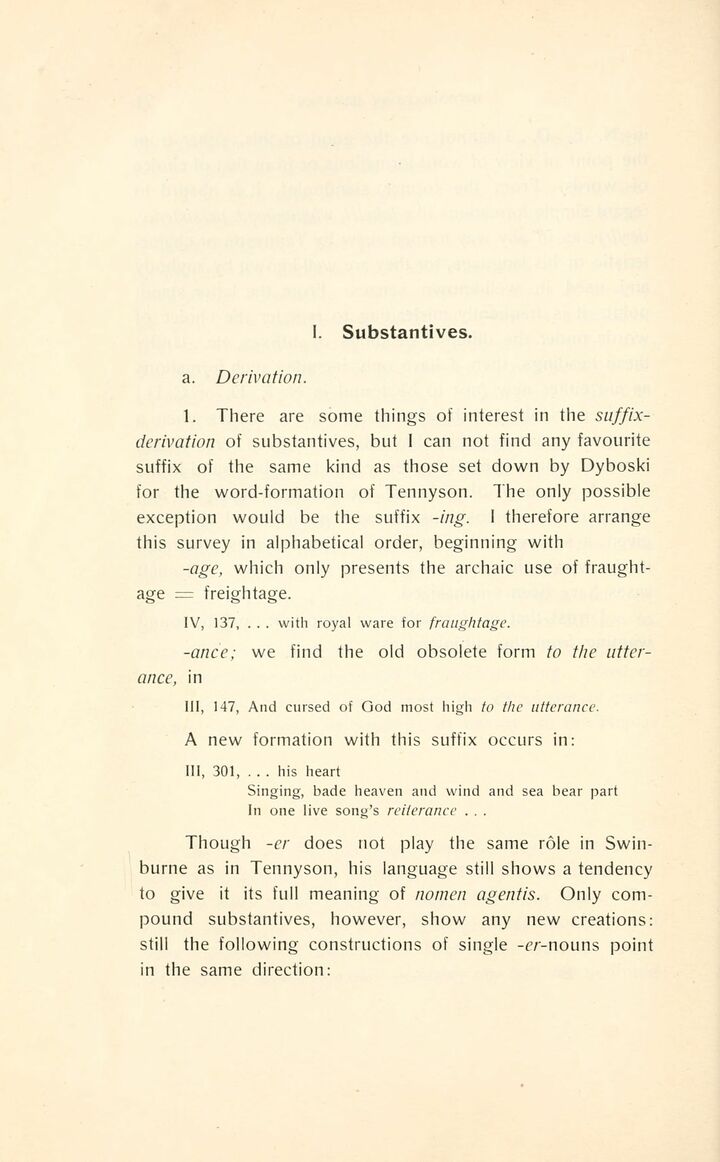
Full resolution (JPEG) - On this page / på denna sida - Sidor ...

<< prev. page << föreg. sida << >> nästa sida >> next page >>
Below is the raw OCR text
from the above scanned image.
Do you see an error? Proofread the page now!
Här nedan syns maskintolkade texten från faksimilbilden ovan.
Ser du något fel? Korrekturläs sidan nu!
This page has never been proofread. / Denna sida har aldrig korrekturlästs.
I. Substantives.
a. Derivation.
1. There are some things of interest in the
suffix-derivation of substantives, but I can not find any favourite
suffix of the same kind as those set down by Dyboski
for the word-formation of Tennyson. The only possible
exception would be the suffix -ing. 1 therefore arrange
this survey in alphabetical order, beginning with
-age, which only presents the archaic use of
fraught-age - freightage.
IV, 137, ... with royal ware for fraughtage.
-ance; we find the old obsolete form to the
utterance, in
III, 147, And cursed of God most high to the utterance.
A new formation with this suffix occurs in:
III, 301, . . . his heart
Singing, bade heaven and wind and sea bear part
In one live song’s reiierance . . .
Though -er does not play the same role in
Swinburne as in Tennyson, his language still shows a tendency
to give it its full meaning of nomen agentis. Only
compound substantives, however, show any new creations:
still the following constructions of single -e/’-nouns point
in the same direction:
<< prev. page << föreg. sida << >> nästa sida >> next page >>